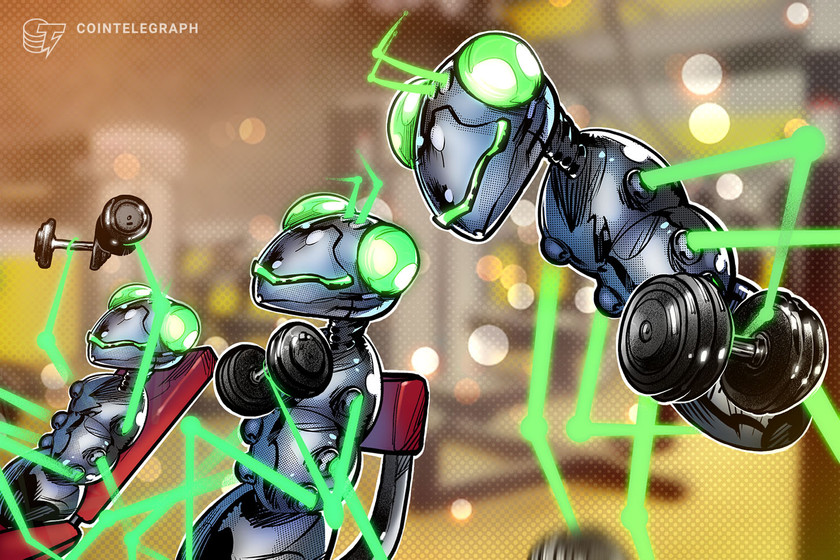5 key features of machine learning


Machine learning is based on the idea that a system can learn to perform a task without being explicitly programmed.
Machine learning has a wide range of applications in the finance, healthcare, marketing and transportation industries. It is used to analyze and process large amounts of data, make predictions, and automate decision-making processes, among other tasks.
In this article, learn the five key features of machine learning that make it a powerful tool for solving a broad set of problems, from image and speech recognition to recommendation systems and natural language processing.
What is machine learning?
Machine learning is a subfield of artificial intelligence (AI) that involves the development of algorithms and statistical models, which allow computers to learn from data without being explicitly programmed. Building systems with the ability to continuously improve their performance on a given task based on the experience obtained from the data they are exposed to is the aim of machine learning. This is accomplished by giving algorithms extensive training on huge data sets, which enables the algorithms to find patterns and connections in the data.
- Supervised learning: This involves training a model on a labeled data set, where the correct output is provided for each input. The algorithm uses this information to learn the relationship between inputs and outputs and can then make predictions on new, unseen data.
- Unsupervised learning: This involves training a model on an unlabeled data set where the correct output is not provided. The algorithm must find the structure in the data on its own and is typically used for clustering, dimensionality reduction and anomaly detection.
- Reinforcement learning: This involves training an agent to make decisions in an environment where it receives feedback through rewards or punishments. The algorithm uses this feedback to learn the best strategy for maximizing rewards over time.
Related: Roots of DeFi: Artificial intelligence, big data, cloud computing and distributed ledger technology


5 key features of machine learning
Machine learning has become one of the most important technological advancements in recent years and has significantly impacted a broad range of industries and applications. Its main features are:
- Predictive modeling: Data is used by machine learning algorithms to create models that forecast future events. These models can be used to determine the risk of a loan default or the likelihood that a consumer would make a purchase, among other things.
- Automation: Machine learning algorithms automate the process of finding patterns in data, requiring less human involvement and enabling more precise and effective analysis.
- Scalability: Machine learning techniques are well suited for processing big data because they are made to handle massive amounts of data. As a result, businesses can make decisions based on information gleaned from such data.
- Generalization: Algorithms for machine learning are capable of discovering broad patterns in data that can be used to analyze fresh, unexplored data. Even though the data used to train the model may not be immediately applicable to the task at hand, they are useful for forecasting future events.
- Adaptiveness: As new data becomes available, machine learning algorithms are built to learn and adapt continuously. As a result, they can enhance their performance over time, becoming more precise and efficient as more data is made available to them.
The integration of machine learning and blockchain technology
The integration of machine learning and blockchain technology holds great promise for the future. Machine learning algorithms can be used to assess the data and generate predictions based on it using a decentralized and secure platform like the blockchain.
One possible area of usage for this integration is in the banking sector, where blockchain technology’s decentralized character and ability to prohibit unauthorized access to sensitive data can help machine learning algorithms detect fraud and money laundering more efficiently.
Related: Blockchain’s potential: How AI can change the decentralized ledger
Machine learning and blockchain technology can also make a significant difference in supply chain management. While blockchain technology can be used to provide openness and accountability in the supply chain, machine learning algorithms can be utilized to optimize supply chain operations and forecast demand.
Blockchain technology can enable the secure and private sharing of medical records, while machine learning algorithms can be used to predict disease outbreaks and enhance patient outcomes.
The future of machine learning
The future of machine learning is expected to be characterized by continued advances in algorithms, computing power and data availability. As machine learning becomes more widely adopted and integrated into various industries, it has the potential to greatly impact society in a number of ways.
Some of the key trends and developments in the future of machine learning include:
- Increased automation: As machine learning algorithms progress, they will be able to automate a larger range of jobs, requiring less human input and boosting productivity.
- More personalized experiences: Machine learning algorithms will have the capacity to assess and make use of enormous volumes of data to deliver highly individualized experiences, such as personalized suggestions and adverts.
- Enhanced judgment: As machine learning algorithms get better at making complicated judgments and predictions, numerous businesses will benefit from more precise and efficient decision-making.
- AI ethical advancements: As machine learning becomes more common, there will be a growing emphasis on ensuring that it is developed and utilized ethically and responsibly, with a focus on safeguarding privacy and eliminating biases in decision-making.
- Interdisciplinary collaboration: Machine learning will increasingly be used in collaboration with other fields, such as neuroscience and biology, to drive new discoveries and advancements in those areas.
Overall, the future of machine learning holds great promise and is expected to continue transforming a wide range of industries, from finance to healthcare, in the coming years.



